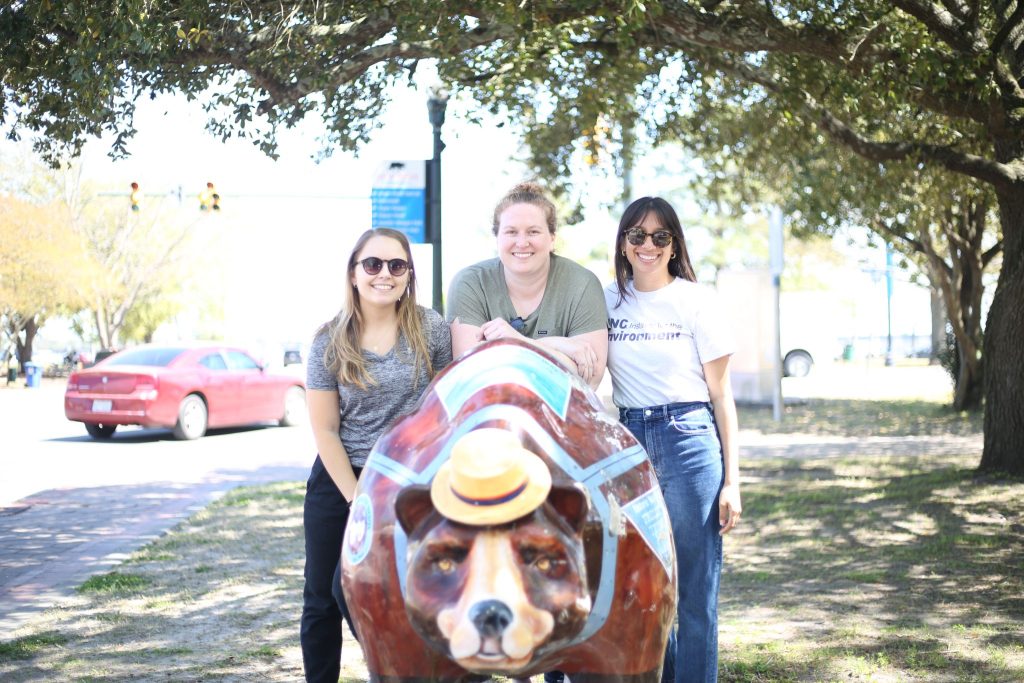UNC-Chapel student team wins inaugural North Carolina Sea Grant’s Coastal Resilience Team Competition
July 8, 2022
In March, a team of UNC-Chapel Hill students was named the winners of the North Carolina Sea Grant’s first Coastal Resilience Team Competition for their research on ecosystem function in New Bern. Now, led by Anne Smiley, the team will work to further implement their research on coastal resilience.
Anne Smiley, a Ph.D. candidate at UNC-Chapel Hill’s Department of Earth, Marine and Environmental Sciences, is serving as the graduate student lead for the research and implementation of the project in New Bern. Smiley and her team will research and assess the impact of climate change and other ecological factors on the ecosystems surrounding New Bern, which has been heavily impacted by flooding. Most recently, New Bern saw an estimated $100 million in damages as a result of Hurricane Florence.
As the winners of the first Coastal Resilience Team Competition, a grant funded by the North Carolina Sea Grant, Smiley and her peers will be the recipients of up to $20,000 to further delve into their research in coastal resilience in New Bern for the next 2 years. Not only will this research provide the City of New Bern with ecological information to prepare for future flooding, but Smiley believes it will serve as a “microcosm of the larger, DEEPP objective” of improving coastal resilience for at-risk communities.”
Smiley’s team is part of a university project called the Dynamics of Extreme Events, People, and Places, also known as the DEEPP Project.“It’s a unique project in that researchers from all over the campus, including environmental scientists like us, social scientists, demographers, and engineers. We’re trying to diversify the perspective around resilience – thinking about all of these different components that might make the coastal community that is flood-prone or hurricane-prone more resilient,” said Smiley.
Helena Garcia, one of the graduate students working with Smiley on the DEEPP Project, said “Anne is a great team leader for our DEEPP student project. She brings a positive energy to our team and always asks great questions that further our collaborative research goals.” Garcia, fellow graduate student Lauren Grimley, and undergraduate student Jacqueline Ruiz will continue to work alongside Smiley for the remainder of their portion of the DEEPP Project.
The interdisciplinary collaboration that defines the DEEPP Project is evident among Smiley and her team members.
“I’m bringing my experience with natural systems function and ecosystem mapping together with Lauren Grimley’s compound flood model and Helena Garcia’s work with city and regional planning,” said Smiley. “The major strength of this project is that by coming together with these people across disciplines, we can ask certain questions and find answers that we wouldn’t have otherwise been able to if we hadn’t come together.”
Alongside this project, Smiley will continue to work to complete her Ph.D. and plans to continue research on coastal science. Whether this future research is in academia or with an NGO, Smiley’s work with the DEEPP Project will help to guide her next steps.
“Transdisciplinary collaboration is something that I would like to continue in the future; focusing on the coastal zone and climate change impacts like sea-level rise, what’s that going to do to distributions of coastal habitats, and what’s that going to do to coastal hazards,” she said.
